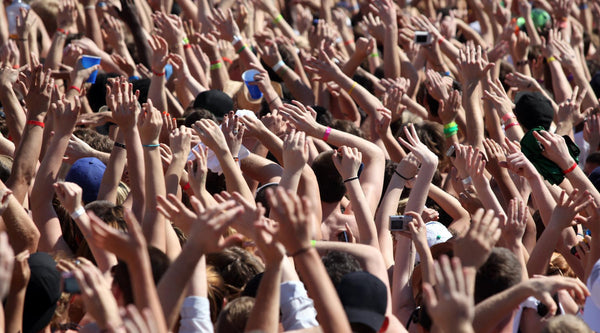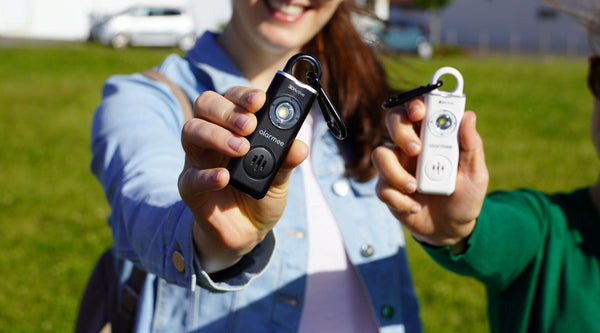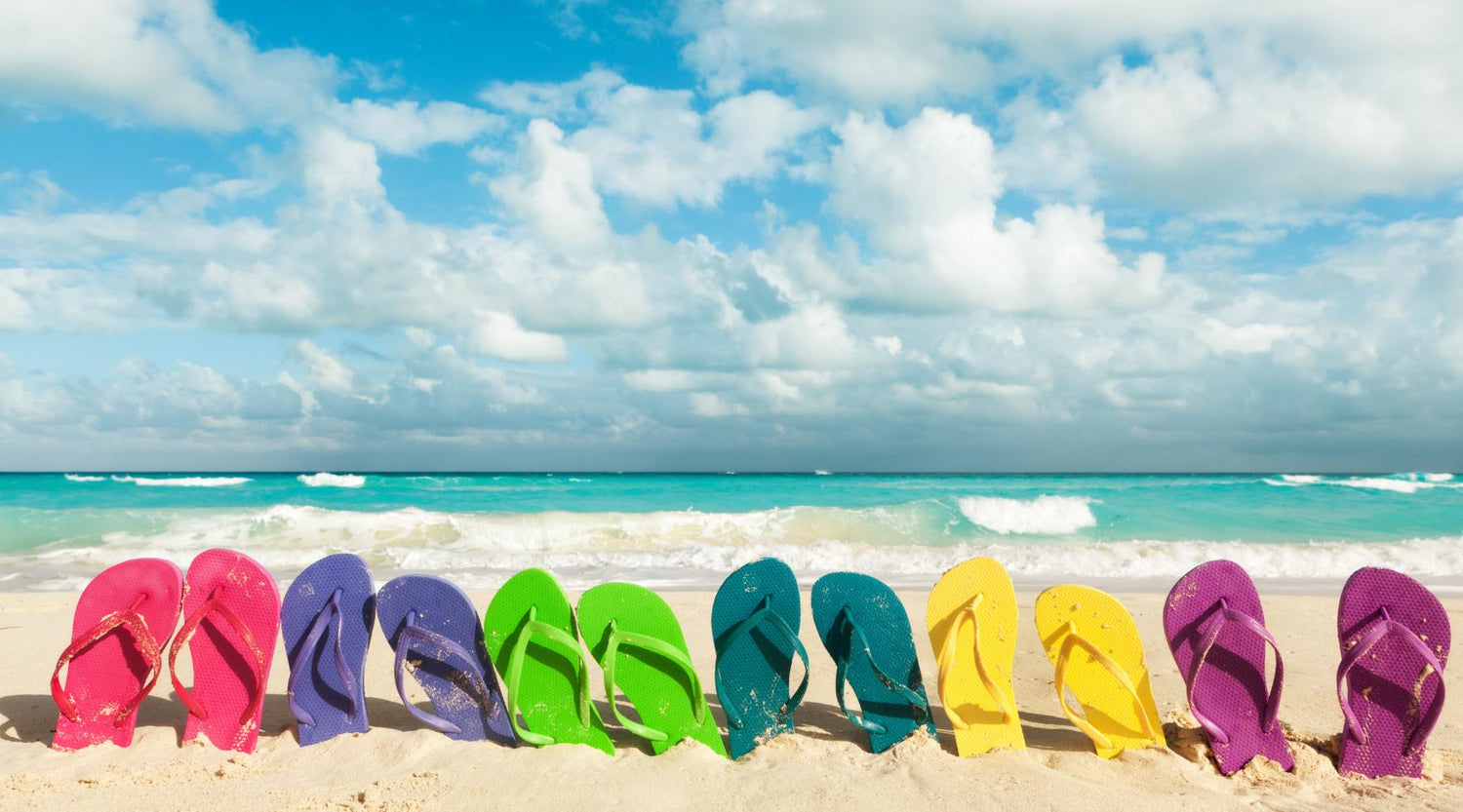Spring break is a time of excitement and adventure for many students and young adults, offering a much-needed break from the rigors of academic life. However, amidst the fun and festivities, it's crucial to prioritize safety. According to recent research, incidents of assault, particularly against students and women, tend to spike during this period. In fact, women are twice as likely to be sexually assaulted during spring break, a shocking statistic in this day and age.
In this article, we'll explore top tips to ensure your spring break remains enjoyable and safe, including the use of personal safety alarms for added peace of mind.
Key Takeaways:
- Stay Aware of your surroundings
- Have a Buddy System
- Limit Alcohol Consumption and Say NO TO DRUGS
- Plan Safe Transportation
- Utilize Personal Safety Measures
Understanding the Risks of Spring Break
Before diving into the tips, it's crucial to have a clear understanding of the potential dangers that may arise during spring break. Armed with this knowledge, you can make informed decisions and minimize risks.

Spring break is a time of excitement and adventure, but it's important to remember that it's not without its risks. While it may seem like a carefree vacation, there are certain dangers that you should be aware of to ensure a safe and enjoyable experience.
Common Dangers During Spring Break
Spring break destinations attract large crowds of tourists from all over, which can lead to increased risks. Pickpocketing, theft, and other forms of petty crime are common in popular vacation spots. Stay vigilant and keep an eye on your belongings at all times.
It's also worth noting that the influx of people during spring break can put a strain on local resources and infrastructure. This can result in overcrowding, longer wait times, and a higher likelihood of accidents or mishaps. It's important to be patient and understanding, as well as to plan ahead and make necessary arrangements to avoid any unnecessary complications.
In addition to these typical risks, water-related incidents such as drowning and boating accidents are also prevalent during this time. Whether you're swimming in the ocean or partying on a boat, always prioritize water safety. Be aware of your surroundings, follow any safety guidelines or warnings, and never underestimate the power of the water.
The Impact of Alcohol and Substance Abuse
Alcohol and substance abuse tend to go hand in hand with spring break festivities. It's essential to be aware of the potential consequences and risks associated with excessive drinking or drug use. We will cover the dangers of alcohol in greater detail in our list of tips to follow below so continue reading.
Essential Safety Tips for Spring Break
Now that you know the risks involved, let's delve into some practical safety tips for a worry-free spring break.

Stay Aware of Your Surroundings
One of the most effective ways to stay safe during spring break is to stay alert and mindful of your surroundings at all times. Avoid walking alone in unfamiliar or poorly lit areas, and trust your instincts if you feel uncomfortable in any situation. Always ensure at least one other person knows your whereabouts so that if you get into any trouble, it is easier to track your location and trace your steps.
Have a Buddy System
Traveling with friends can significantly enhance your safety during spring break. Make a pact to stick together and look out for one another, especially when attending parties or exploring new destinations. Having a reliable buddy can deter potential attackers and provide immediate support in case of emergencies. As we mentioned earlier, if you ever do need to go somewhere alone, make sure you tell someone where you are going and what time you are expected to return.
Limit Alcohol Consumption
Alcohol impairs judgement, inhibits decision-making abilities, and makes you more vulnerable to accidents and dangerous situations. Know your limits and always drink responsibly. Alcohol is a factor in the deaths of thousands of young people every year in the United States and shockingly, 1 in 5 college women experience sexual assault during their time in college, with a majority of assaults involving alcohol and other substances. These incidents can be more prevalent during Spring Break when there is excessive alcohol consumption.
While it's understandable that you want to have a good time and let loose during spring break, it's crucial to prioritize your safety and well-being. By being aware of the potential risks and taking necessary precautions, you can ensure a memorable and enjoyable spring break experience. Consider these tips:
- Pace yourself
- Balance alcohol intake with Water intake
- Make sure you have eaten before you start drinking
- NEVER accept drinks from strangers
- NEVER leave your drink unattended
- Don’t get into a car with a drunk driver or drive impaired
Travel Safety Measures
When traveling to your destination, it's crucial to prioritize your safety. Make sure to research and choose reputable transportation options. Look for companies that have a proven track record of safety and positive customer reviews. This way, you can have peace of mind knowing that you're in good hands.
If you're driving, ensure that your vehicle is well-maintained. Before hitting the road, take your car for a thorough inspection to ensure that everything is in working order. Additionally, avoid driving long hours without breaks. Fatigue can impair your judgment and reaction time, so make sure to take regular rest stops to stay alert and focused.
It's also wise to share your travel plans and itinerary with a trusted friend or family member. Provide them with details such as your flight or train information, hotel reservations, and contact numbers. This way, someone knows where you are and can check in on you if needed. It's always better to have someone looking out for you, especially when you're in an unfamiliar place.
Accommodation Safety Guidelines
Your accommodation plays a vital role in your overall safety during spring break. If you're staying at a hotel or resort, take some time to familiarize yourself with the emergency exits and safety protocols. Locate the nearest fire exits and stairwells, so you know how to quickly and safely evacuate in case of an emergency.
When in your room or leaving for the day, always lock your doors and windows securely. Use the deadbolt and chain lock to provide an extra layer of security. If your room has a balcony, ensure that the sliding door is locked as well. By taking these simple precautions, you can greatly reduce the risk of unauthorized entry.
Consider using a safe to store your valuables, such as passports, cash, and electronics. Most hotels provide in-room safes for guests to use. Take advantage of this amenity to keep your belongings secure. Avoid displaying expensive jewelry or belongings that could attract unwanted attention. It's always better to be discreet and keep a low profile when it comes to your valuables.
Remember, safety should always be a top priority, even when you're on vacation. By following these travel and accommodation safety guidelines, you can ensure a worry-free and enjoyable spring break experience. Stay safe and have a fantastic time!

Utilize a Personal Safety Device
Consider carrying a personal safety device with you at all times as you never know when these could come in handy. Personal Safety Alarms are an excellent option for added protection that are very easy to use and do not require special training. These compact devices emit a loud sound when activated, drawing attention to your situation and potentially deterring attackers. With a simple pull or push of a button, you can alert others and seek assistance in case of emergencies. It is a great device for all members of the family to have on their person.
Other Personal Defense devices such as Pepper Sprays and Tazers can also be useful, however, these are more prone to travel restrictions and are more dangerous to use.
Staying Healthy During Spring Break
Spring break is all about having a great time, but it's important to take care of your health too. Follow these tips to stay healthy throughout your vacation.
While it's tempting to indulge in sugary drinks and alcoholic beverages during spring break, it's crucial to prioritize hydration. Ensure you stay hydrated by drinking plenty of water, especially if you're spending time in the sun. Dehydration can lead to fatigue, dizziness, and heat-related illnesses. So, keep a water bottle handy and take regular sips throughout the day to replenish your body's fluids.
In addition to staying hydrated, it's essential to nourish your body with the right nutrients. Pack healthy snacks to keep your energy levels up and provide your body with essential vitamins and minerals. Opt for fruits, vegetables, and whole grains that will keep you feeling satisfied and energized throughout the day. Remember, balance indulgence with moderation when it comes to food and drink choices. While it's okay to treat yourself, try to make nutritious choices whenever possible to keep your body fueled.

Sun Protection and Heat-Related Illness Prevention
The warm weather during spring break is perfect for fun in the sun, but it's important to protect yourself from harmful UV rays. Apply sunscreen generously and frequently, making sure to cover all exposed areas of your skin. Don't forget to reapply every two hours, or more often if you're swimming or sweating.
While enjoying outdoor activities, it's crucial to be aware of the symptoms of heat-related illnesses. Heat exhaustion and heatstroke can occur when your body overheats due to prolonged exposure to high temperatures. Symptoms may include dizziness, nausea, rapid heart rate, and even confusion. If you experience any of these signs, it's important to take immediate action. Seek shade or an air-conditioned area, drink cool water, and use cold compresses to cool down your body temperature. If symptoms persist or worsen, seek medical attention right away.
By following these tips, you can ensure that your spring break is not only fun but also safe and healthy. Remember, taking care of your well-being is just as important as having a great time, so make your health a priority during your vacation.
Navigating Social Situations Safely
Spring break often involves socializing and meeting new people. While it can be an exciting experience, it's important to prioritize your personal safety and well-being.
When it comes to navigating social situations, setting personal boundaries is key. Take the time to know your limits and establish boundaries for yourself. Remember, you are in control of your own comfort level. Don't feel pressured to engage in any activities that make you uncomfortable. Trust your instincts and remove yourself from any situation that feels unsafe or dangerous. Your well-being should always be your top priority.
Safe party practices are essential during spring break festivities. Partying is a common part of the experience, but it's crucial to party responsibly. One important rule to follow is to avoid accepting drinks from strangers. It's always better to be cautious and stick to beverages you have personally ordered or prepared. Additionally, always keep an eye on your drink. Unfortunately, drink tampering can occur, so it's important to stay vigilant. Knowing your alcohol tolerance is also crucial. Pace yourself and be aware of how much you are consuming. It's always better to enjoy the festivities in a controlled and responsible manner.
Another important aspect of partying safely during spring break is to stick with a group of trusted friends. Having a support system can make a significant difference in ensuring everyone's safety. Look out for one another and establish a system of checking in regularly. This way, if anyone feels uncomfortable or needs assistance, they can rely on their friends for support. Remember, there is strength in numbers, and having a close-knit group can provide an added layer of security.
Emergency Preparedness for Spring Break
Even with all the precautions in place, emergencies can still happen. Being prepared and knowing what to do in case of an emergency is essential.
Essential Emergency Contacts
Save emergency contact numbers in your phone and keep written copies in case of a dead battery or lost phone. Familiarize yourself with local emergency services, including hospitals, police stations, and the nearest embassy or consulate if you're traveling internationally.
What to Do in Case of an Emergency
In the event of an emergency, stay calm and call for help immediately. Follow any instructions provided by emergency professionals and notify your travel companions or someone back home about the situation.
It's important to remember that emergencies can come in many forms, and being prepared for different scenarios can make all the difference. For example, if you're traveling to a coastal destination, it's crucial to be aware of the potential risks associated with water activities. Familiarize yourself with the local beach safety guidelines, such as rip currents and jellyfish stings, and always swim in designated areas with lifeguards present.
Additionally, if you're planning on exploring nature during your spring break, make sure to research the area's wildlife and potential hazards. Knowing how to handle encounters with wild animals, such as bears or snakes, can help prevent dangerous situations. It's also a good idea to pack a basic first aid kit with essentials like band-aids, antiseptic wipes, and pain relievers, as minor injuries can happen even during leisurely hikes or outdoor activities.
Remember, your safety should always be your number one priority. By following these top tips for staying safe this spring break, you can enjoy your vacation while minimizing risks and creating lasting memories. So go ahead, have fun, and stay safe!



